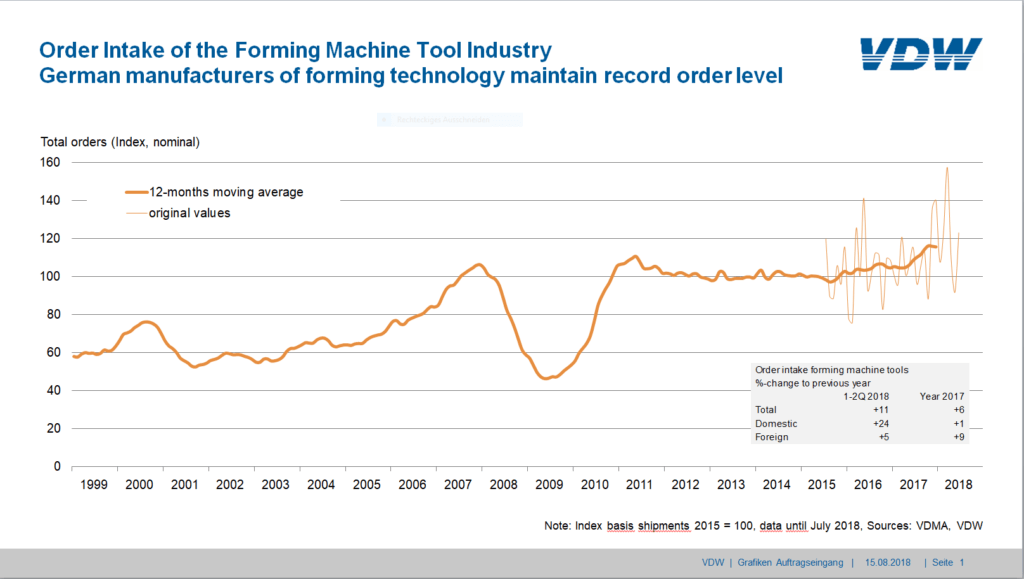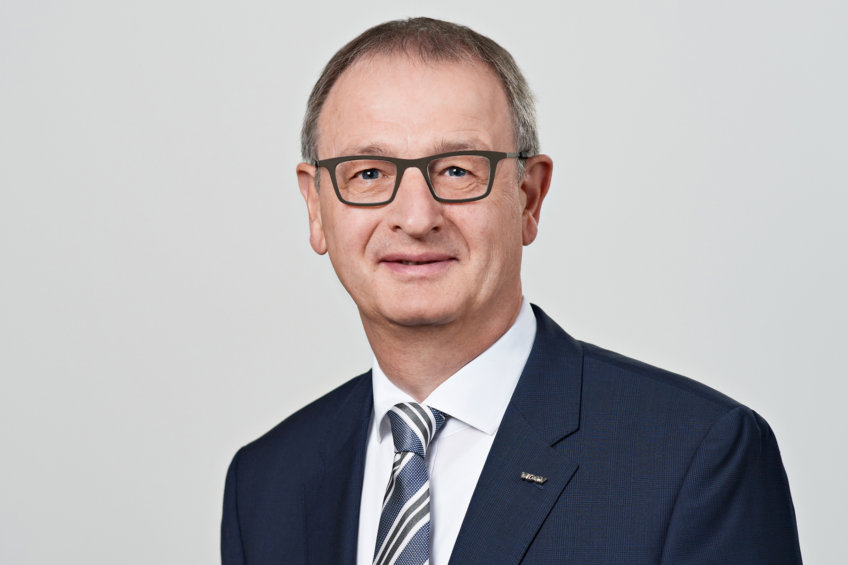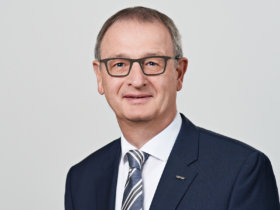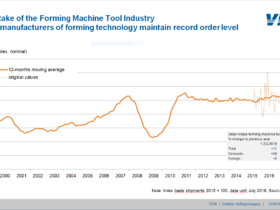German manufacturers of forming technology maintain record order level
In the second quarter of 2018, order bookings at German manufacturers of forming technology maintained the preceding year’s level. Domestic orders were up by 22 per cent, while exports fell by ten per cent. In the first half of the current year, order bookings rose by eleven per cent. Domestic orders were up by 24 per cent, exports by five per cent.

“Orders from Germany and abroad are at present widely divergent,” explains Dr. Wilfried Schäfer, Executive Director of the VDW (German Machine Tool Builders’ Association) in Frankfurt am Main. Following a lengthy period of hesitation, the domestic market is now finally seeing significant capital investment. The Euro nations continue to offer a solid foundation for progressing the sector’s business. In addition, investment is losing some of its dynamism, particularly in Asia, because demand in the huge Chinese market is perceptibly cooling down, a trend deliberately fostered by the politicians,” adds Dr. Schäfer.
Orders for forming technology developed just as well as those for metal-cutting machinery in the year’s first half, and also exhibited the same pattern for orders from Germany and abroad. In terms of forming technology sales, the best-performing category in the year’s first half was press technology, which achieved a double-figure increase. Sheet-metalworking in 2017 had proved to be an effective support, and is accordingly starting from an already-high base figure.
Capacities at the manufacturers of forming technology were in July of this year being utilised at 87.2 per cent, which corresponds to the medium-term average. “In fact, capacities in the sector are coming up against their limits,” says Dr. Schäfer. According to an Ifo business survey, more than half of the machine tool manufacturers interviewed in mid-year reported material scarcity, and almost 40 per cent complained of labour shortages. “This is attributable to bottlenecks in the entire component supply chain. Important parts are sold out. And commissioning work, particularly abroad, is suffering from staffing bottlenecks,” explains Dr. Schäfer.
Forming technology traditionally contributes 30 per cent towards the total production output of the German machine tool industry. Last year, that amounted to around three billion euros. Current developments corroborate the VDW’s production forecast, which is anticipating sectoral growth of another seven per cent for 2018. “If international economic policy doesn’t put a spoke in our wheel with Brexit, increasing turbulences in Turkey, trade wars, reversal of globalisation, threats of sanctions, our sector is in good shape,” says Dr. Schäfer of the VDW in conclusion.




